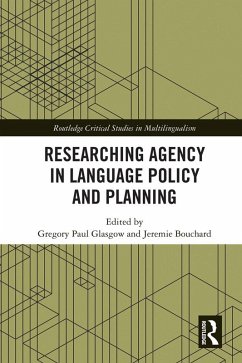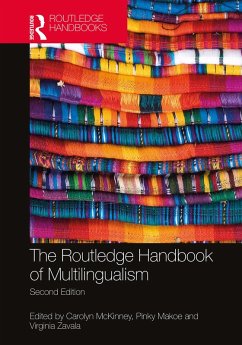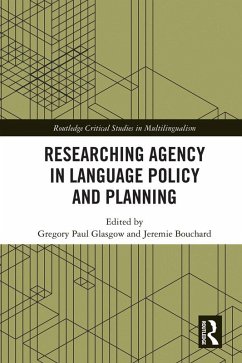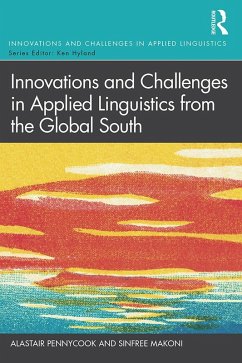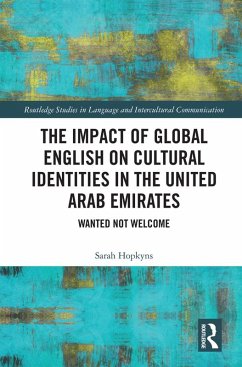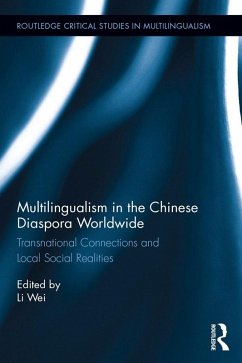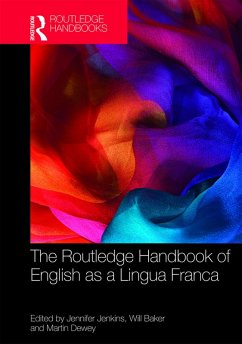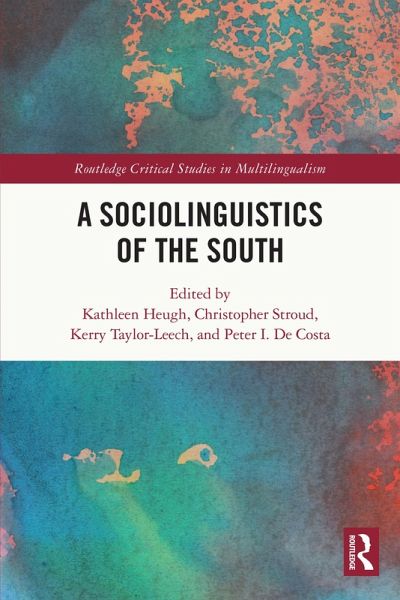
A Sociolinguistics of the South (eBook, ePUB)
Versandkostenfrei!
Sofort per Download lieferbar
39,95 €
inkl. MwSt.
Weitere Ausgaben:

PAYBACK Punkte
20 °P sammeln!
This book brings to life initiatives among scholars of the south and north to understand better the intelligences and pluralities of multilingualisms in southern communities and spaces of decoloniality.Chapters follow a longue durée perspective of human co-existence with communal presents, pasts, and futures; attachments to place; and insights into how multilingualisms emerge, circulate, and alter over time. Each chapter, informed by the authors' experiences living and working among southern communities, illustrates nuances in ideas of south and southern, tracing (dis-/inter-) connected disco...
This book brings to life initiatives among scholars of the south and north to understand better the intelligences and pluralities of multilingualisms in southern communities and spaces of decoloniality.
Chapters follow a longue durée perspective of human co-existence with communal presents, pasts, and futures; attachments to place; and insights into how multilingualisms emerge, circulate, and alter over time. Each chapter, informed by the authors' experiences living and working among southern communities, illustrates nuances in ideas of south and southern, tracing (dis-/inter-) connected discourses in vastly different geopolitical contexts. Authors reflect on the roots, routes and ecologies of linguistic and epistemic heterogeneity while remembering the sociolinguistic knowledge and practices of those who have gone before. The book re-examines the appropriacy of how theories, policies, and methodologies 'for multilingual contexts' are transported across different settings and underscores the ethics of research practice and reversal of centre and periphery perspectives through careful listening and conversation.
Highlighting the potential of a southern sociolinguistics to articulate a new humanity and more ethical world in registers of care, hope, and love, this volume contributes to new directions in critical and decolonial studies of multilingualism, and to re-imagining sociolinguistics, cultural studies, and applied linguistics more broadly.
Chapters follow a longue durée perspective of human co-existence with communal presents, pasts, and futures; attachments to place; and insights into how multilingualisms emerge, circulate, and alter over time. Each chapter, informed by the authors' experiences living and working among southern communities, illustrates nuances in ideas of south and southern, tracing (dis-/inter-) connected discourses in vastly different geopolitical contexts. Authors reflect on the roots, routes and ecologies of linguistic and epistemic heterogeneity while remembering the sociolinguistic knowledge and practices of those who have gone before. The book re-examines the appropriacy of how theories, policies, and methodologies 'for multilingual contexts' are transported across different settings and underscores the ethics of research practice and reversal of centre and periphery perspectives through careful listening and conversation.
Highlighting the potential of a southern sociolinguistics to articulate a new humanity and more ethical world in registers of care, hope, and love, this volume contributes to new directions in critical and decolonial studies of multilingualism, and to re-imagining sociolinguistics, cultural studies, and applied linguistics more broadly.
Dieser Download kann aus rechtlichen Gründen nur mit Rechnungsadresse in A, B, BG, CY, CZ, D, DK, EW, E, FIN, F, GR, HR, H, IRL, I, LT, L, LR, M, NL, PL, P, R, S, SLO, SK ausgeliefert werden.




